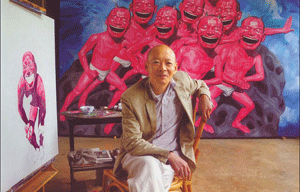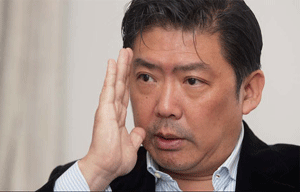New law ensures drug addicts' rights to proper care
Updated: 2011-10-18 07:25
By Zhao Yinan and Zhang Yan (China Daily)
|
|||||||||
BEIJING - A new regulation to protect the rights of drug addicts in compulsory rehabilitation centers was launched on Monday, amid rising concerns about preventable deaths of drug abusers during detoxification.
The new regulation issued by the Ministry of Public Security replaced the old regulation promulgated in 2000, in a bid to introduce all-round protection for drug addicts and improve the management of rehabilitation centers.
The regulation outlawed forced work for drug addicts and, if they are willing to work, their health condition has to be considered and they cannot work for more than six hours a day.
According to the regulation the money earned through a rehabilitant's work has to be kept in a separate bank account and should be used only to benefit the rehabilitant, such as paying them wages and improving their living conditions.
Li Wenjun, a professor at the Chinese People's University of Public Security, said organizing drug addicts to participate in work should not be considered punishment.
"After all, they are patients, and some appropriate cultural activities or work are conducive to their physical and mental recovery," she said, adding that work is a way of respecting addicts' human rights.
Work can also help drug users shift their attention and end their psychological addiction to drugs, she said.
In addition, the regulation ensures drug addicts' freedom and privacy of communication. It also requires all rehabilitation centers to set up around-the-clock monitoring systems to prevent patients from physical abuse and to prevent them from escaping.
"Setting up a security system is considered an aspect of strict management," said Li Guifang, deputy director of the criminal defense committee of the All China Lawyers Association.
"Some serious drug addicts may suffer from mental disorders, and their behavior is sometimes out of control, so there are some security risks in drug addiction treatment centers," Li Guifang said.
"Installing a security system will help the guards detect problems early and stake effective measures."
The regulation was revised following a string of preventable deaths of drug addicts in rehabilitation centers, which aroused widespread concerns.
A drug addict surnamed Ke in Guangdong province died of expiratory dyspnea last year, after suffering from breathing difficulties for two days.
Zhou Jiang, a prosecutor in Jiangsu province, told Procuratorial Daily that the preventable deaths of rehabilitants caused the public to wonder whether addicts receive proper care at detoxification centers.
"Since rehabilitation centers are relatively reclusive places where the rehabilitants are kept away from the outside world, it is hard for the public to monitor their management, and conflicts between rehabilitation centers and addicts' relatives are common," he said.








